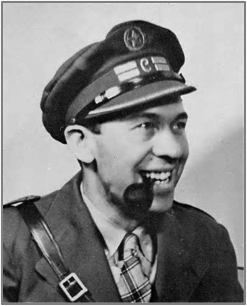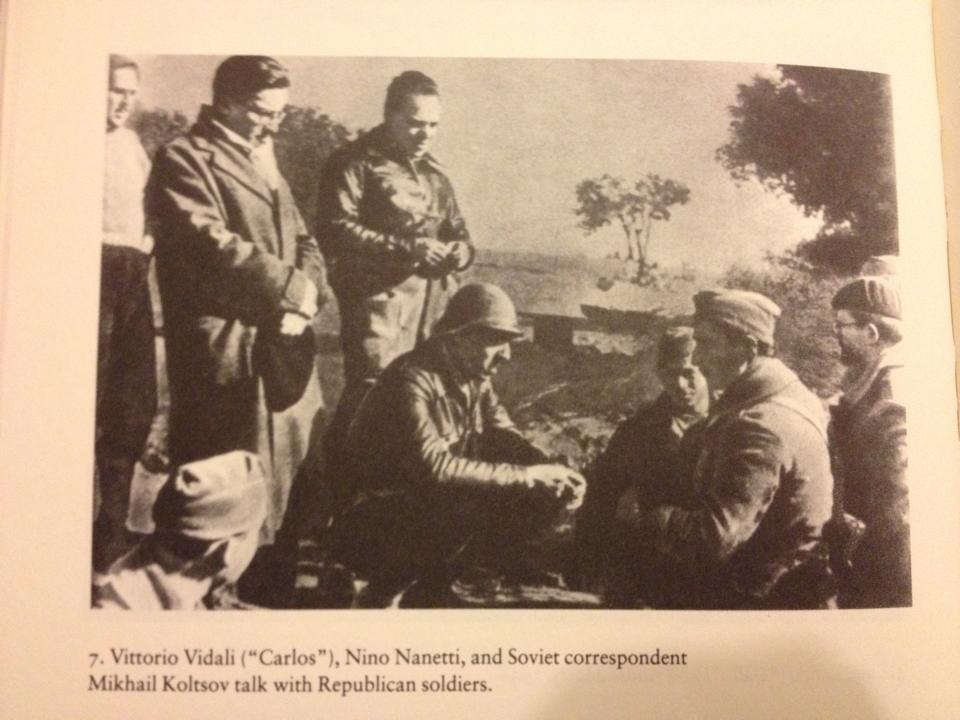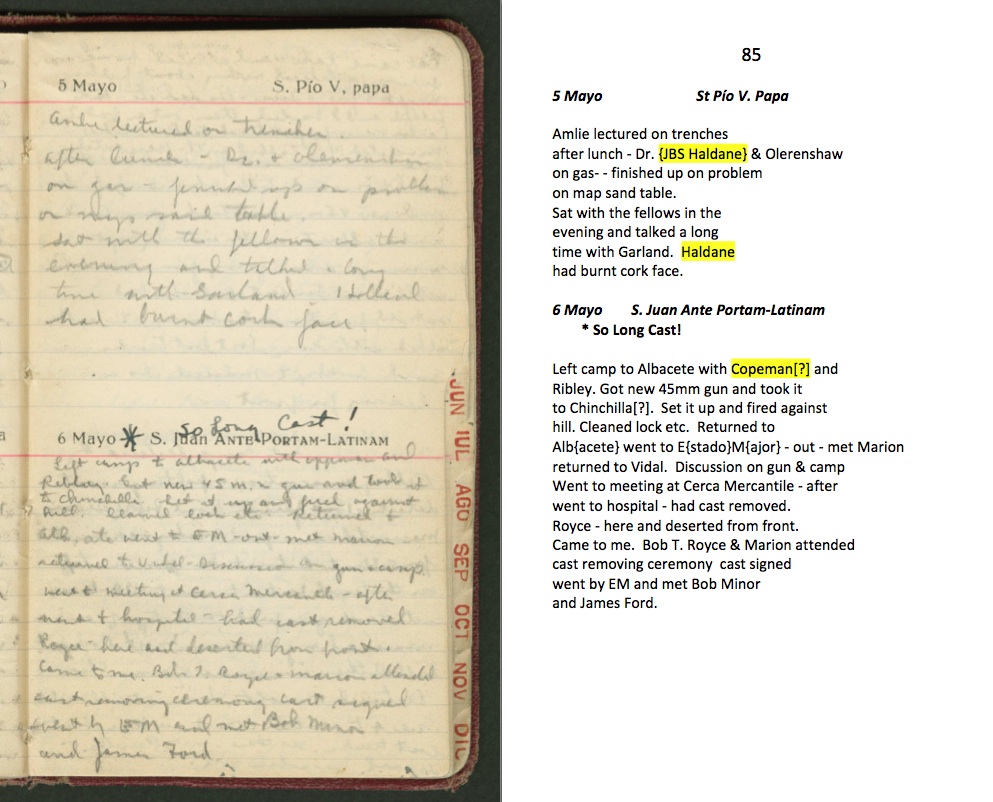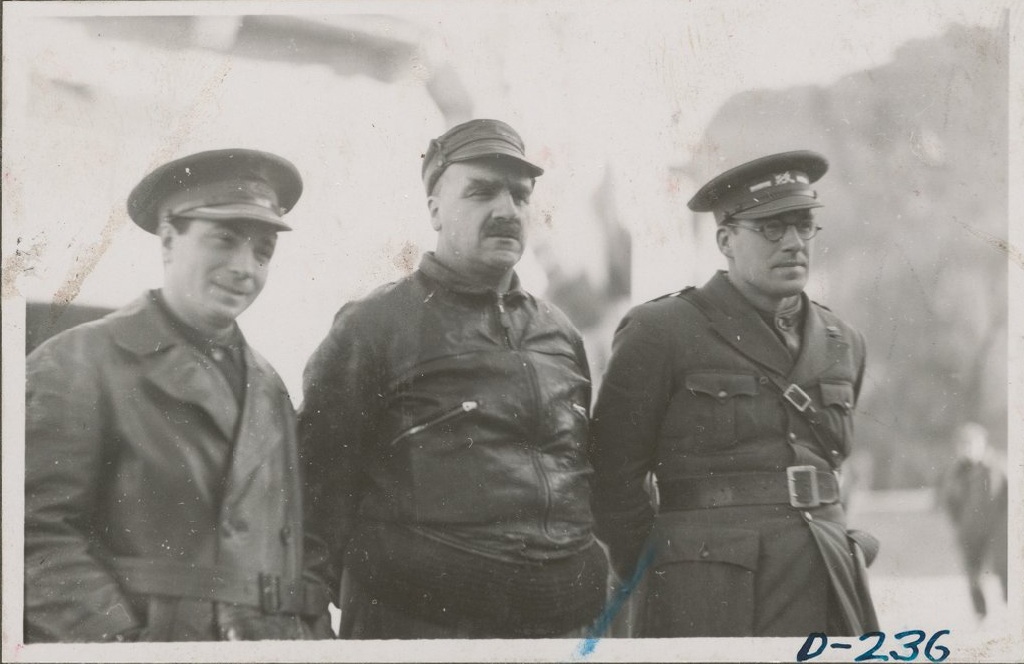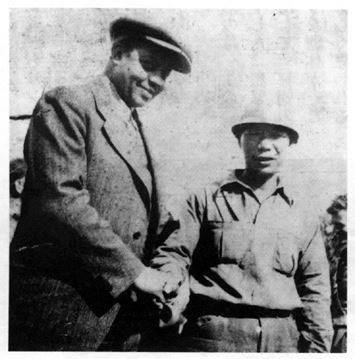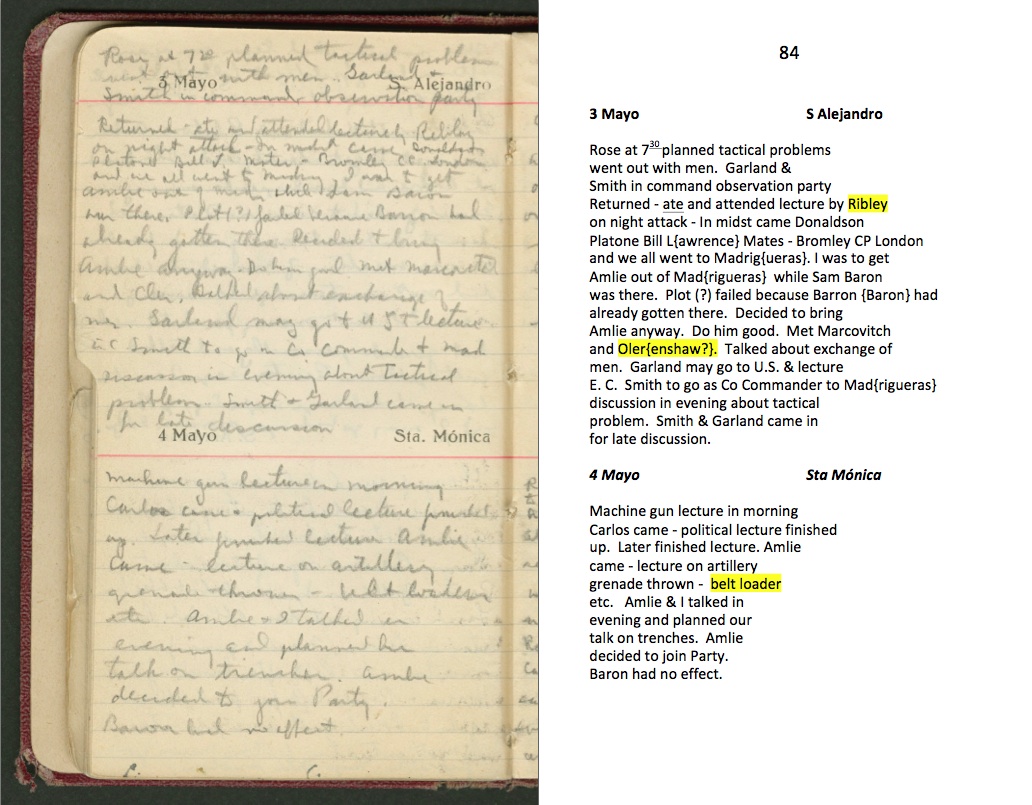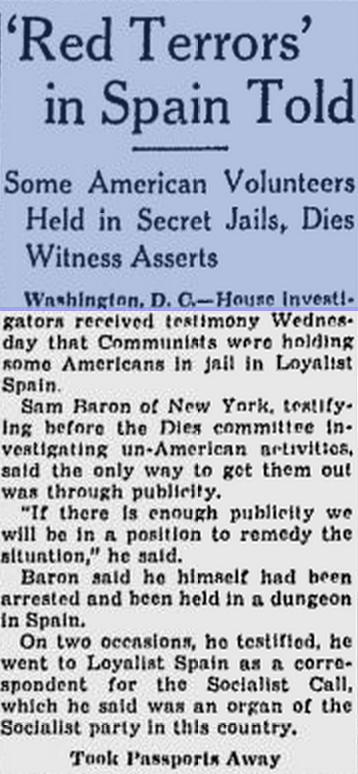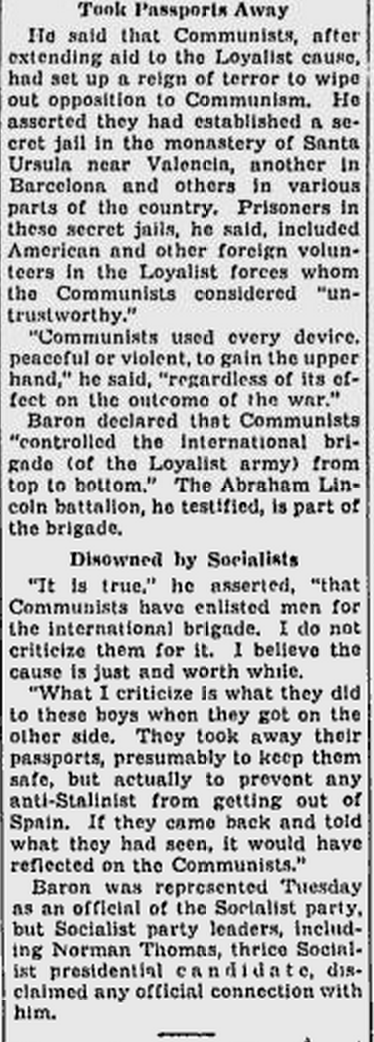

Merriman completes the discussion about potential sabotage in Albacete and places the guard until 3am. He went with Marcovics to the Estado Major and got in, even though Marcovics had been turned away previously. The importance of these visits on the 10th-11th of every month and at the end of the month was that payday was for days 1-11 of the month and 12-31 of the month. The two paydays were not large, generally being about 30 pesetas a pay period for a soldado (a private) which in current money is about $5 US (1937 exchange rate). The officers would get about 425 pesetas for a commissar or lieutenant at this time (10 times that of the soldado). By September 1938, the commander of the Battalion made 900 pesetas a pay period and a soldado got 300 pesetas, a rate of 3 to one. This is remarkable for any organization when the person at the top made only a factor of 3 greater than the lowest paid person. One might expect that the urgency of getting into the Estado Major was to pick up the payroll for Pozorubio and Madrigueras, and as we will see Merriman will be leaving later for Valencia so having some spending money would be helpful.
Merriman meets with the head of a Young Communist League from what reads as “Candamar”… this location is unknown. Merriman arranges with Vidal and Platone to get permission for Bob Thompson, Marion Merriman and himself to go to Valencia and he arranges for a car and driver. The permission for Marion took a bit of arguing but they got permission and left late in the day with a “crazy” Polish chauffeur, who was only recently arrived in Spain. Accommodations in Valencia were limited so Marion stayed with their friend, the writer Milly Bennett, and Thompson, the driver and Merriman stayed at the Socorro Rojo Internacionale (SRI), or Red Cross HQ.
Dinner was a reunion of old friends and some new reporter friends. They ate with Josephine Herbst, Griffin Barry (not Berry) of Reuters, and Ed Kennedy of the United Press. Griffin Barry’s daughter wrote a book about him in 2003, entitled “A Man of Small Importance“. One interesting fact about Barry is that he fathered two children out of wedlock with Dora Russell, Bertrand Russell’s wife at the time. Bertrand Russell was having his own affair on the side so it appears that this was a very open marriage between them.
Merriman mentions, as well, Kate and sister Millie, which is clearly a reference to Milly Bennett. If Kate is her “sister” it is by marriage and not by birth since Mildred Bremler Mitchell (Milly Bennett) had a brother Arnold but by the time she is 20, no other sibling. Milly had married Mike Mitchell in 1921 and this may be Mike’s sister. We believe that “Kate” is Kate Mangan, a reporter in Spain at the time. We will explain this speculation below. “Millie and Herman had idea about each other but decided not to try it”. We will suggest the identity of “Herman” in the diary page for May 14. Griffin Barry’s book by Harriet Ward does describe meeting with Milly Bennett. I have been unable to this point to get the memoir but a review is here. Edward Kennedy’s memoir covered a bit of his time in Spain and describes interactions with these writers but does not discuss the meeting with the Merrimans. Kennedy became famous for flashing the surrender of the Germans in WW II (69 years ago this week) back to the US and being fired by AP for jumping the embargo on the news prior to Eisenhower being able to make the announcement.
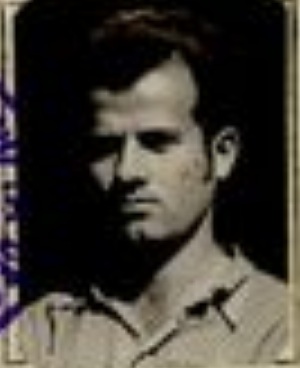

Waking on the 12th, Merriman says he has breakfast with Pinky Griffiths. Merriman met a “Griffiths, an AP Reporter” in the January 16 entry but it is not clear if this is the same Pinky Griffiths who is mentioned here. Eric “Pinky” Griffiths was a New Zealand pilot who was injured in Madrid during a dogfight. Thanks for James Carmody and John Wainwright for the reference to Chapter 5 of Kiwi Companeros, which is on Griffiths. He mentions Angel, who probably is one of two Puerto Ricans who worked in the Brigade headquarters, Miguel Estrella Angel (Stella) or Angel Garcia Ocasio. Milt Wolff mentions on an ALBA Audiotape that he was so impressed with “Angel”, he named his daughter after him.
Merriman says that he met with Constanta at the Censors (not Censures) Office. Alan Warren has suggested that this is likely to be Constancia de la Mora, a Spanish aristocrat who supported the Republicans by directing the Foreign Press office in Valencia at this time. She was married to Ignacio Hildalgo de Cisneros, who headed the Republican Air Forces.
Merriman mentions that 3000 people had relocated from Madrid to Valencia by this time. He meets with a “Jan Kursky” who is Jan Kurske, a German in the XIth Battalion with the French, was injured in Boadilla in February 1937. Kurske was hit by shrapnel and taken to Murcia where he was with Tom Wintringham and nurse Patience Darton. When Merriman was injured in February and was in hospital, Marion Merriman was a contact between Kurske and his wife, Kate Foster Kurske, who was working in the Press and Propaganda Office in Valencia at the time. Kurske’s memoir is has a wealth of information on the people who the Merrimans meet in Valencia in May.² Over lunch at La Marcelina (founded in 1888 and still there) near the harbor, they got his story. In the afternoon, the Merrimans go with Kennedy to the beach and do some shopping. At dinner, they meet with two important CPUSA leaders, Bob Minor and James Ford, along with Griffin Barry, who must have gotten great stories that night.
The boys did what boys do, going out for drinks at a strip joint, and Merriman slept in Kennedy’s room while Bob Thompson slept with (probably) Sol Feldman, who had sailed for Spain on March 17. As part of their duties in Valencia, they were rounding up new US recruits who were recently arrived.


Merriman says that “Stepanovitch” was meeting with a New Zealander. There is not a large list of New Zealanders in Spain and Pinky Griffiths is the obvious candidate for this. We identified Stepanovitch as Vlajko Begovics in the February 19 posting. Stepanovitch served as a photographer and many of the Comintern Folder 179 photos in the Tamiment Library were taken by him. Stepanovitch seemed to be Vladimir Copic’s personal press secretary since he took so many photos of him, but he also documented other Yugoslav Brigadistas, such as Chapayev. Interestingly, he took a photograph of Steve Nelson (of Yugoslavian heritage) along with Doug Roach and that may have been his motivation for the photo.
____________________________
¹ Mark Derby, ed., Kiwi Compañeros : New Zealand and the Spanish Civil War, Canterbury University Press, University of Canterbury, Private Bag 4800, Christchurch 8140 New Zealand, 2009.
² Jan Kurske and Kate Foster Kurske Mangan, The Jan Kurske Papers 1934, 1936-1937, 1998 “The Good Comrade”, International Institute of Social History, Cruquiusweg 31 1019 AT Amsterdam The Netherlands, 2011. (Thanks to James Carmody for the association of the name and to Rickard Jorgensen for access to the manuscript. It does not appear to be available online any more).


